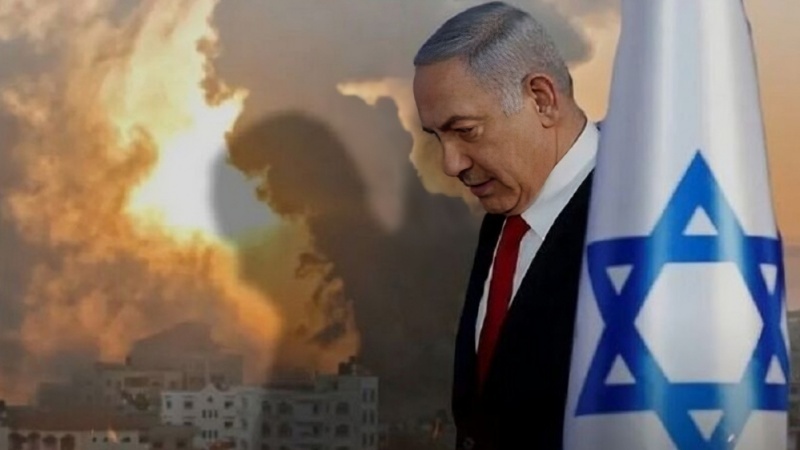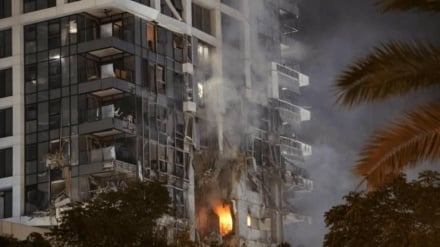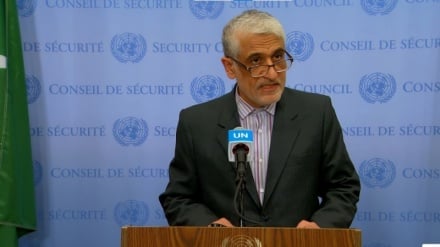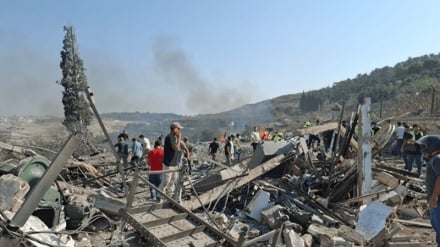Crises that continue to haunt Israel
-

Crises that continue to haunt Israel
Pars Today – The crises engulfing Tel Aviv are highly complex and multifaceted. If the Israeli regime has managed to survive despite these challenges, it has largely been due to unwavering support from the West.
According to Pars Today, Israel is grappling with severe crises both domestically and in the international arena. While these crises currently pose significant challenges to the regime, their long-term effects are likely to create new risks for Israel’s objectives, operations, and future.
Since the October 7, 2023, operation, the Israeli regime has severely lost its deterrence and has not faced such a devastating blow at any point in its sinister existence until now. The regime is confronting crises across multiple spheres, including domestic and international public opinion, economic challenges, security issues, and the expanding anti-Israel sentiment within the Occupied Territories and across West Asia.
Crisis in public opinion among the regime’s supporters
The Israeli regime attempted to consolidate itself in the Occupied Territories through the construction of an artificial nation. However, it has suffered significant damage in this regard during the recent war against the people of Gaza and Hamas. Issues of insecurity in areas overlooking Gaza, as well as in northern parts of the Occupied Territories destabilized by confrontations with Hezbollah, form part of these challenges.
Additionally, the wave of Jewish immigration to the Occupied Territories has not only slowed down but has even begun to reverse.
Global public hatred toward the Israeli regime
With the start of the new academic year at universities in the U.S. and Europe, a new wave of protests has emerged in the West against the crimes of the Israeli regime. Due to the anti-imperialist nature of these protests, the demonstrations are not only directed at Israel but have also sparked broader waves of opposition against Western policies.
Israel’s economy on the brink of disaster
The Israeli regime’s economy has suffered massive losses, both from the costs of its war against Gaza and from factory shutdowns, boycotts of its goods, and the closure of key economic routes and corridors. Experts and international media warn that rising tensions and increasing energy demands have pushed Israel to the verge of an energy crisis. This could lead to a decline in foreign investment, disrupt economic activities, and simultaneously pose a threat to the regime’s military readiness.
The newspaper Yedioth Ahronoth has described Israel’s economic situation as a “pre-disaster,” noting that the country’s public debt-to-GDP ratio has reached nearly 70%.
Meanwhile, Yemen has delivered another severe blow to the regime by halting Israeli ships, a move that will make the regime’s operations even more difficult in the long term.
Israeli pressure in confrontation with the Resistance Axis in the Occupied Territories
Despite dropping bombs on Gaza and killing over 64,500 Palestinians, the Israeli regime has still failed to achieve its objectives in the Strip. Hamas in Gaza has not been destroyed; instead, its brigades continue to inflict daily casualties on the Israeli army.
Furthermore, the inclusion of the West Bank as an active front has compounded Tel Aviv’s challenges. Interestingly, Netanyahu failed to secure any gains in Gaza and has now expanded military operations toward the West Bank, a move that is further complicated by the growing influence of Hamas in this area, intensifying the difficulties for Israel.
Anti-Israel belt of the Resistance Axis in West Asia
The Israeli regime attempted to draw others into the fire it is facing by taking actions against Syria and Lebanon. In response, Hezbollah in Lebanon, as a powerful actor, stood as a barrier to Israeli advances, and Yemen subsequently closed maritime routes to Israeli ships.
Additionally, resistance groups in Iraq carried out actions against Israel. Coupled with the confrontations between Iran and Israel—peaking during the “True Promise” operation—Israel’s weaknesses in facing the Resistance Axis have become increasingly apparent.
Under these conditions, the Israeli regime is in a serious and ongoing squeeze against the Resistance Axis, which will continuously present significant challenges to its stability and operations.


